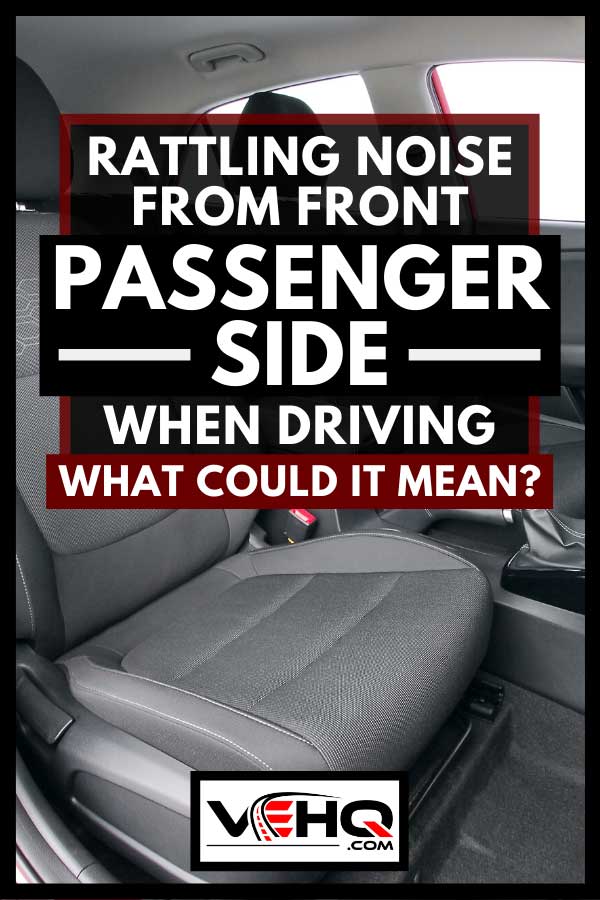 Hearing any sort of rattling noise from your car can cause stress and concern. The first question that pops into anyone's mind when their car makes an irregular sound is, "What's wrong with my car?" This question leads to more questions such as, "How much is it going to cost me?" and "How long will it be in the shop?" We've done the research to give you a list of possible problems so you can get your car diagnosed and fixed in as little time as possible.
Hearing any sort of rattling noise from your car can cause stress and concern. The first question that pops into anyone's mind when their car makes an irregular sound is, "What's wrong with my car?" This question leads to more questions such as, "How much is it going to cost me?" and "How long will it be in the shop?" We've done the research to give you a list of possible problems so you can get your car diagnosed and fixed in as little time as possible.
Some of the possible causes of a rattling noise from the passenger side while driving are:
- Bad wheel bearing
- Loose hubcap
- Bad shocks or struts
- Timing chain issue
- Damaged/bent suspension
- Unsecured wheel
While it's no guarantee your car has one of these problems, these are the most common hiccups that cause cars to rattle near a wheel while driving.
Continue reading below as we go through each problem more closely so you can get the best idea of what might be wrong with your car.
Why Does It Sound Like My Tire Is Rattling?
Below we'll discuss each potential problem at length so you can better understand what might be wrong with your vehicle.
Bad Wheel Bearing
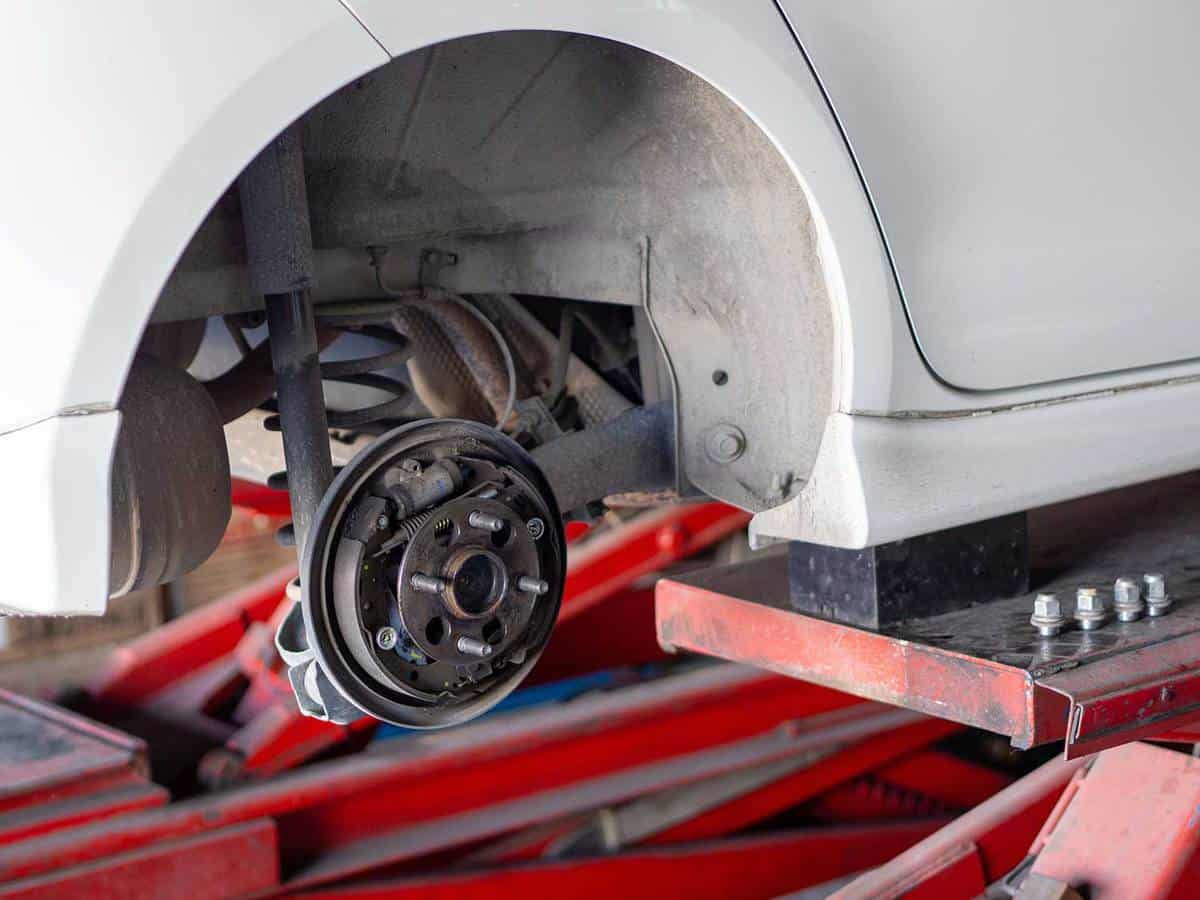
This is one of the most common problems when you hear a noise or feel slight rattling on one side of the car. You might be wondering what a wheel bearing even is. After all, most people don't work in an automotive shop. Wheel bearings are located near the center of your wheel. They either come in a roller style or a ball style, but both function the same way.
The purpose of a wheel bearing is to help the entire hub assembly that the wheel is attached to spin without any friction. This provides a smooth ride so people in the car don’t feel the effects of the moving parts. When a wheel bearing is in good condition and installed correctly, you shouldn’t feel the wheels spinning at all.
Do Wheel Bearings Rattle?
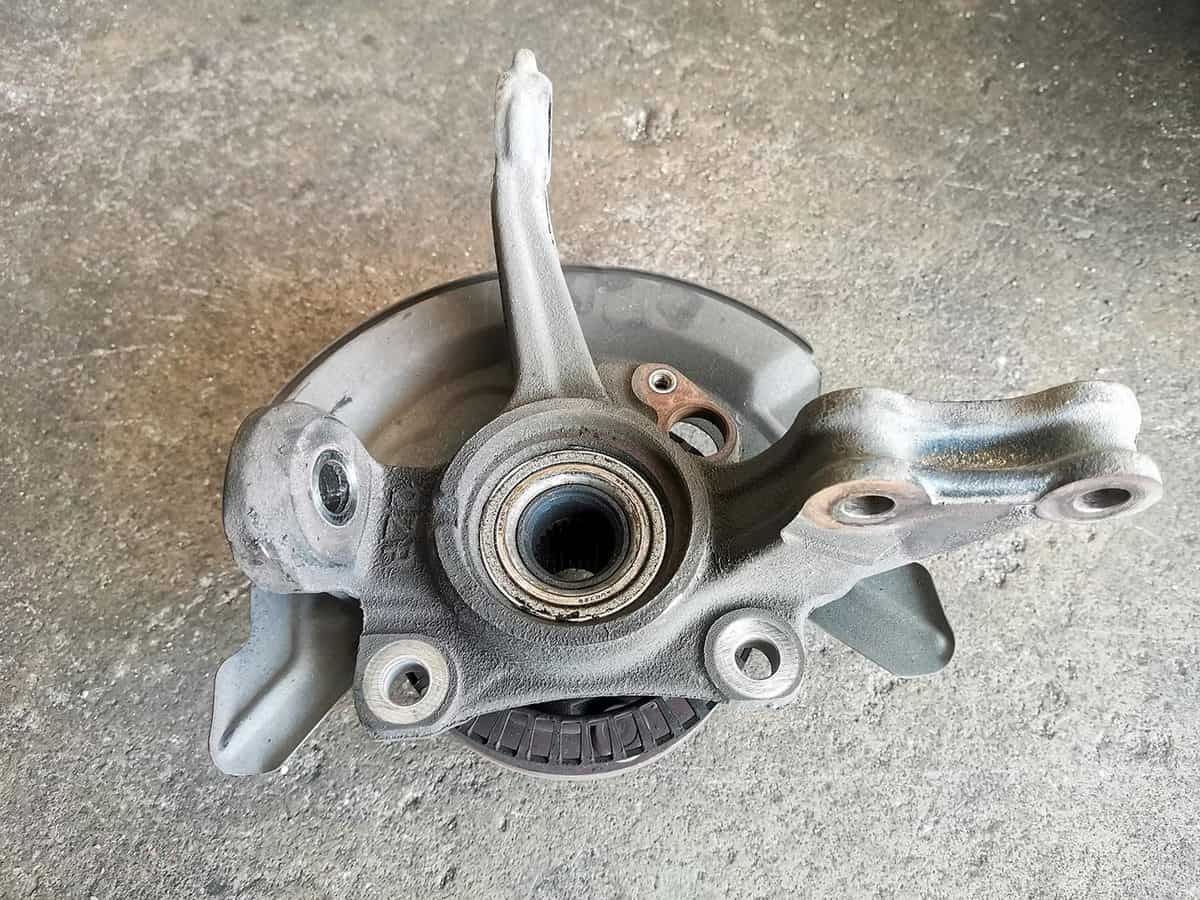
When a wheel bearing is broken or going bad, little flakes of metal can start to move around and chip off. Essentially, a wheel bearing starts to go bad when its surface isn’t smooth anymore. Therefore, it can’t provide a quiet ride and may even cause riding discomfort.
It will often make a rattling noise or shake the car when driving. The process to change a bearing requires taking apart the hub assembly near the wheel. A mechanic will always do the best job, as they are professionals. Pricing ranges from $250 to $750 depending on the car, its age, and what shop you take it to.
Loose Hubcap
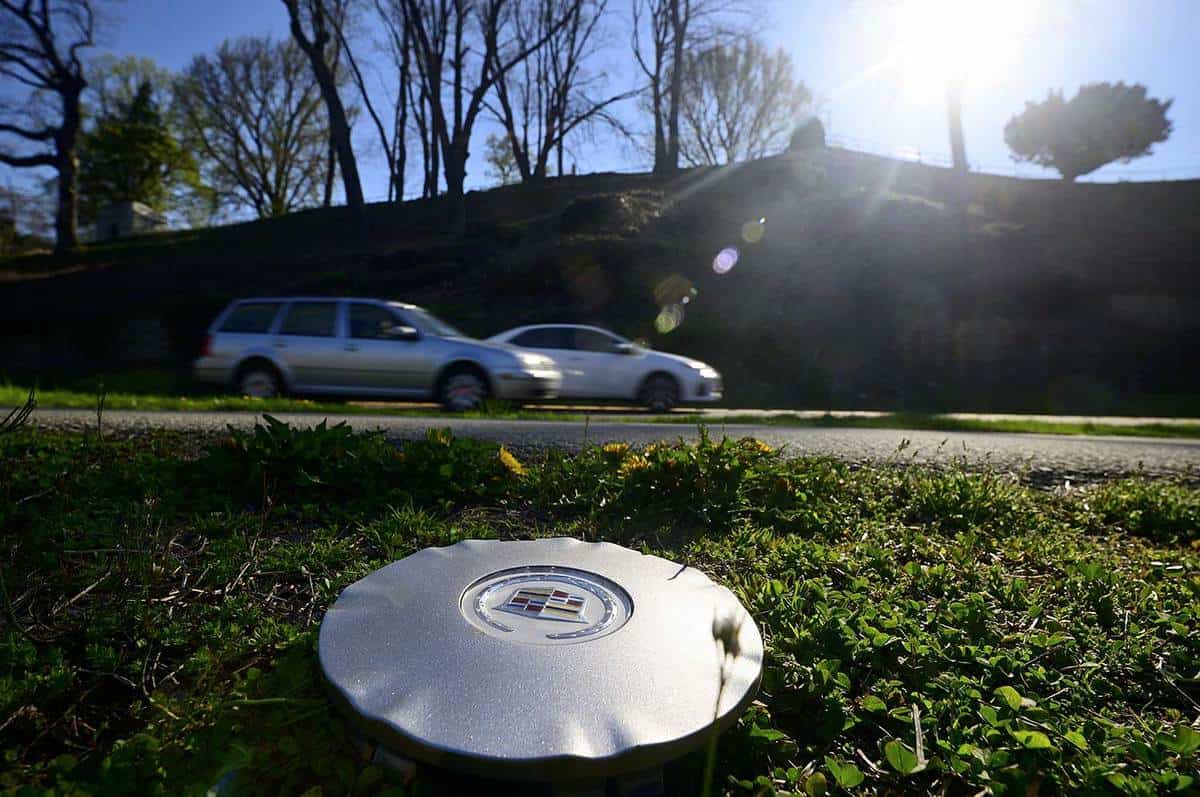
If you’re hoping for a quick fix, there is always a chance it’s just a loose hubcap. If you’re not experiencing any difference when it comes to how well the car rides and it just seems to make a loud rattling noise, then you may want to go to your passenger side front wheel and make sure the hubcap isn’t loose.
To be extremely thorough, you can take off all the hubcaps completely and drive around at high speeds to see if the noise goes away. If the noise does go away, congratulations! It’s a cheap fix. Hubcaps are typically held on by small plastic clips and it is fairly common for one of them to break off and cause the entire hubcap to rattle around.
You may have hit a curb, or it may have just broken off for no apparent reason. Either way, you can order a new one and put it on yourself or have a mechanic order the part and do all of the labor for you. Just make sure you’re ordering the right hubcap that will match the rest of the wheels. Hubcaps can run anywhere from $30 to $150 or more, depending on what kind you get.
Bad Shocks Or Struts
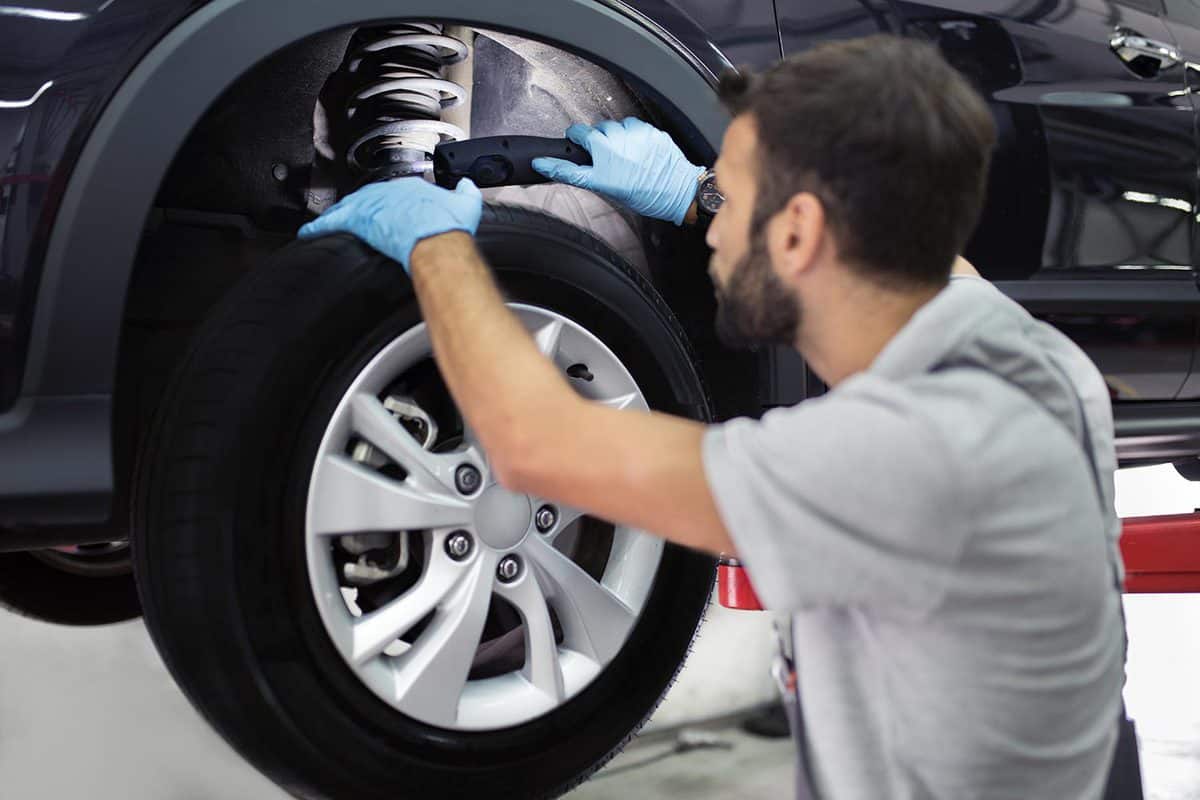
While rattling alone is typically not a sign of bad shocks or struts, it doesn’t hurt to have them checked out by a mechanic if you’re experiencing an unusual rattling and shaking. Shocks and struts are located near the wheels of a car, and their job is to work tirelessly to absorb the shock from bumps and potholes your car drives over.
When a shock or strut goes bad, you may start experiencing louder road noise on rougher terrain and much more rattling and shaking as the broken shocks or struts fail to absorb every bump on one side of your car. If you drive on a lot of country roads or any particularly bumpy roads for that matter, light rattling on one side of your car may mean one of these parts is going bad.
Shocks and struts can be difficult to replace so we never recommend doing them yourself. Paying a mechanic to do it right the first time can be cheaper than doing it yourself and accidentally messing something up.
For shocks, you can expect to pay anywhere from $250 to $700. Struts tend to cost a little bit more so to replace one of those may cost somewhere between $450 to $900. While these costs are high, the parts play an important role in keeping your entire car functioning properly on the road.
Timing Chain Issue
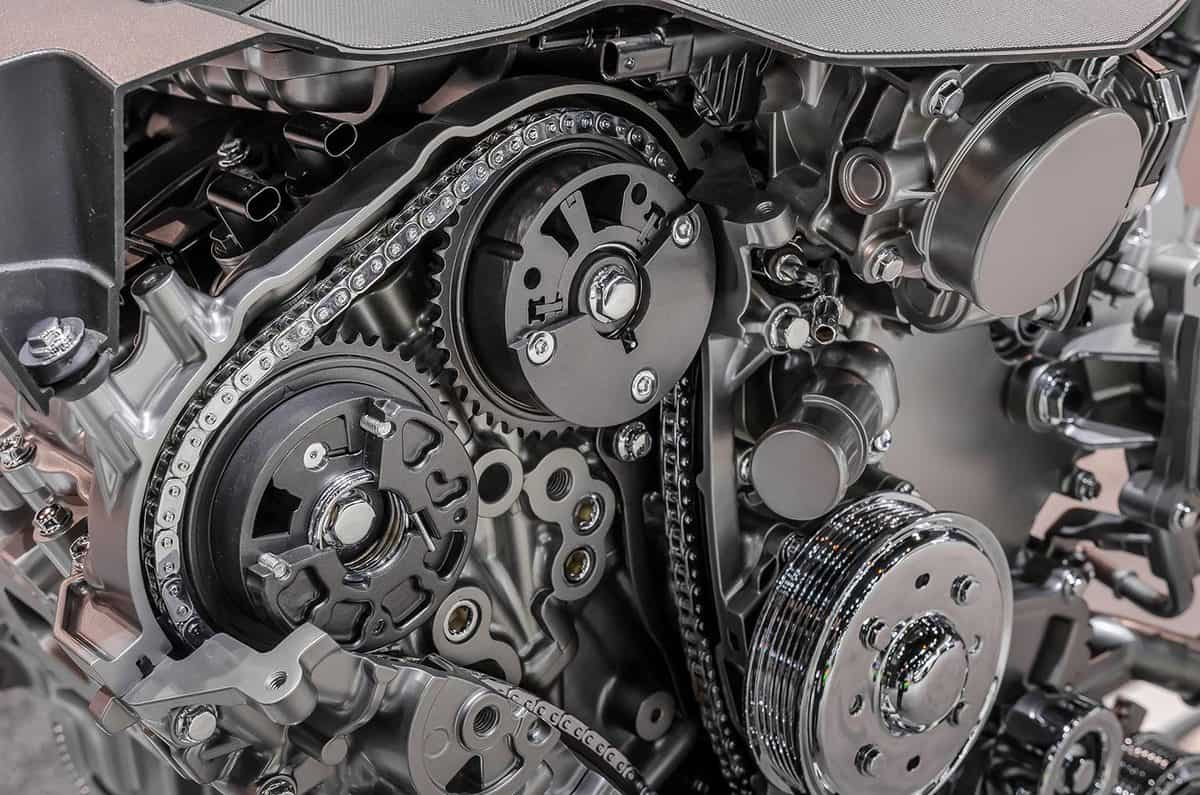
Timing chains, while not located next to a wheel, could be another cause for a rattling car. If you’re noticing the rattling when the car is driving more slowly or while sitting still, it could be the timing chain. Often it rattles the engine, but for whatever reason, you may think it is rattling one side of the car.
This is also a complex issue that requires a mechanic to fix. Timing chains are a necessary part of an engine, as it keeps everything running together. A timing chain typically costs anywhere from $400 to $1,000 to fix.
Damaged/Bent Suspension
Suspension is a broader term that refers to the entire system of parts that holds the car up and is in charge of how it handles and rides on the road. When you experience rattling or shaking, there is a good chance something has happened with the suspension. We’ve already talked about certain parts of the suspension which usually cause rattling, but there is a chance it could always be another part that’s warped or bent.
The suspension does not just bend on its own. Most of the time the suspension is bent from hitting a curb, pothole, or another damaging obstacle. There’s a chance something on the passenger side bent and needs to be replaced. The cost for a mechanic to replace an entire suspension system can be upwards of $5,000, but replacing just a small part could also be as low as $150 or less. It all depends on what is broken or damaged.
Unsecured Wheel
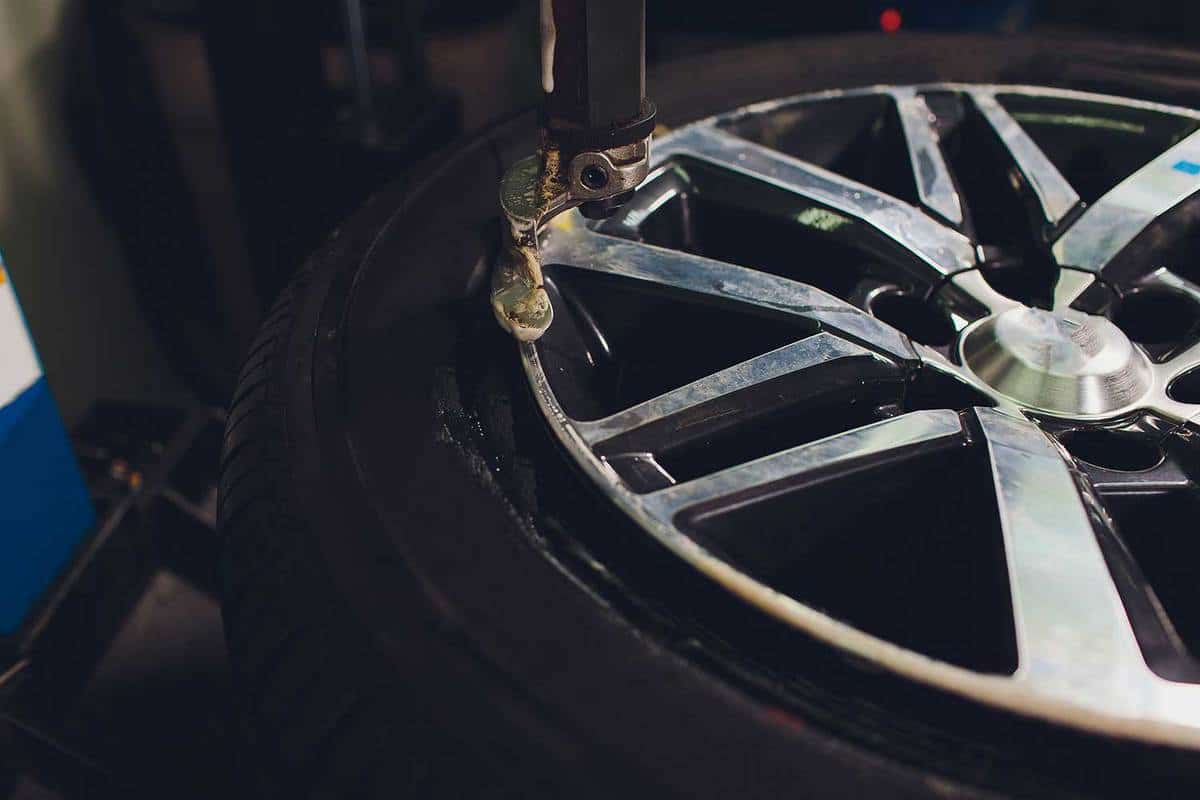
Another simpler fix is an unsecured wheel. When tires are changed or rotated, they have to be securely fastened back onto the hub assembly for them to rotate properly. Tire shops will put the wheel back on the hub assembly and tighten around 6 bolts to keep the wheel in place. If one or more of those bolts are loose or off, it could create a slight rattle or wobble that you notice when driving.
Tire shops have professional equipment designed to properly tighten wheels, so if you suspect it could be a loose tire, try taking it to a tire shop and asking them to retighten the wheels for you. It shouldn't cost you more than a few dollars if it's not free, as it should only take a few minutes.
Why Does My Car Rattle At High Speeds?

Any of these parts could be contributing to a rattle at high speeds. More than likely a timing chain is not the issue if it is only happening at high speeds. With cars, you can never really guess with absolute certainty what the problem is because there are so many moving parts. All it takes is one part to move out of place and you will feel it.
If your car is rattling at high speeds, there can be a great safety concern. You can put yourself at risk by driving a problematic car at fast speeds. If you're experiencing this, we recommend having your car evaluated by a certified mechanic as soon as possible.
In Closing
All in all, a rattling car is something to take extremely seriously. It can be a very big deal, so the best thing to do is take it to a mechanic to be diagnosed. Driving a car oftentimes requires both scheduled maintenance and unscheduled maintenance. Unfortunately, fixing unexpected problems is one of the less convenient things about car ownership.
Before you go, be sure to check out these other helpful guides -
